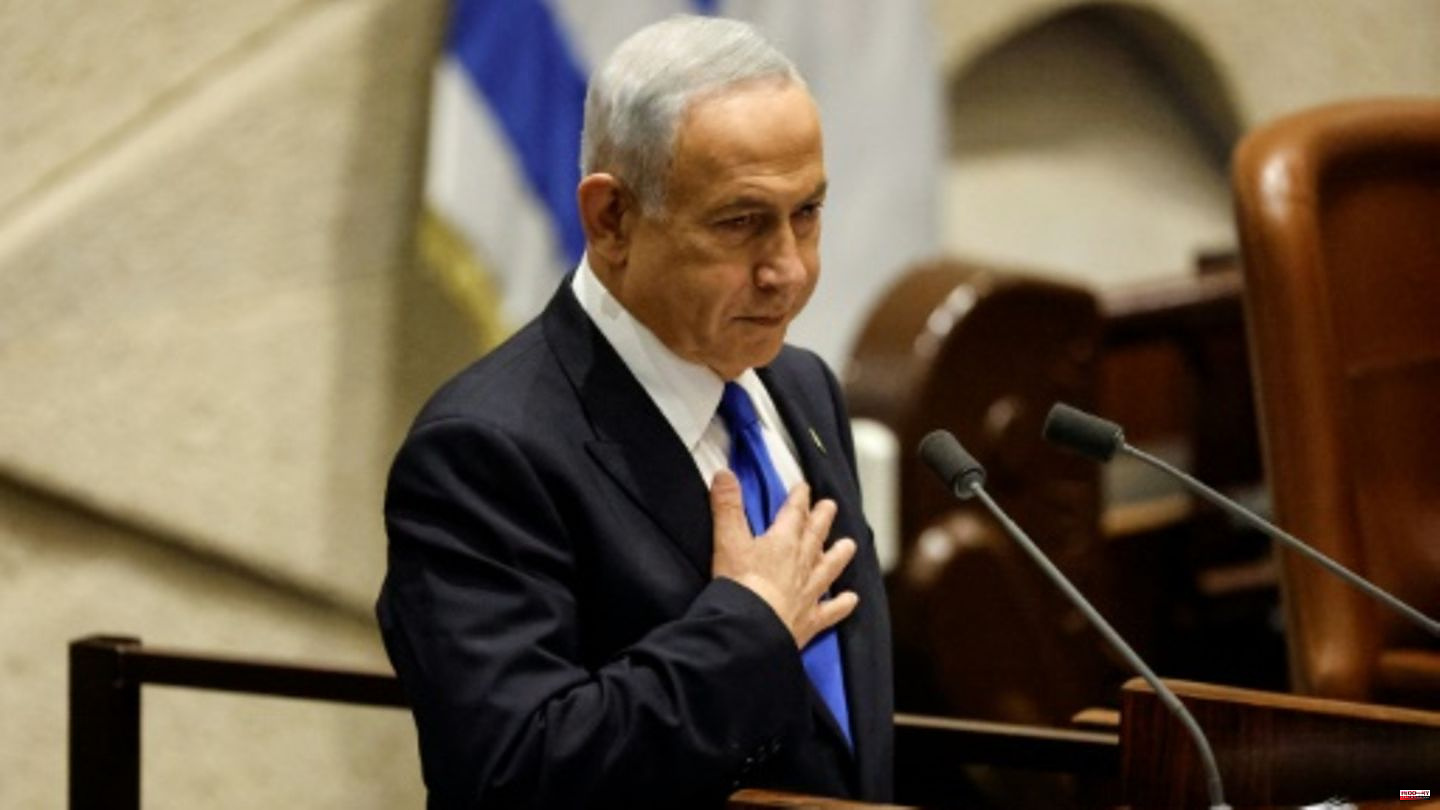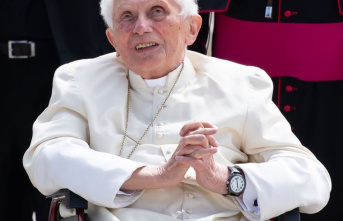Before Netanyahu was sworn in, parliament had approved the new government. 63 of the 120 members of the Knesset voted for the new governing coalition. Netanyahu had previously told parliament his primary goal was "to frustrate Iran's efforts to develop a nuclear arsenal" and "ensure Israel's military superiority in the region."
In the Knesset, the 73-year-old also expressed the hope of "broadening the circle of peace with Arab countries." Netanyahu appointed ex-Intelligence Minister Eli Cohen, who had played an important role in normalizing relations with several Arab states, as his foreign minister. Former army commander Joav Galant becomes defense minister.
Former Justice Minister Amir Ohana was elected Speaker of Parliament. The 46-year-old is the first openly homosexual man in this position in Israel.
After his Likud party won the November 1 parliamentary election, Netanyahu secured the support of ultra-Orthodox and ultra-right parties. The new government now also includes the ultra-right party Noam. She is openly hostile to members of sexual minorities. Hundreds of people protested against the new government outside the Knesset on Thursday, some with rainbow flags.
Shortly after Netanyahu was sworn in, Chancellor Olaf Scholz (SPD) conveyed his "best wishes" to Netanyahu. "Israel and Germany share a special and close friendship," explained Scholz. "We will continue to cultivate this basis of partnership-based cooperation (...)."
According to the Kremlin, Russian President Vladimir Putin welcomed Netanyahu's return to government. Putin said he wanted to expand cooperation with Israel.
Also involved in the new government are the ultra-right parties Religious Zionism and Jewish Power, whose party leaders Belazel Smotrich and Itamar Ben Gvir have attracted attention with inflammatory statements about Palestinians.
Smotrich assumes responsibility for the settlements in the occupied West Bank. Ben Gvir, as security minister, will be in charge of the police force, which also operates in territory occupied by Israel since the 1967 Six-Day War.
Arje Deri, head of the ultra-Orthodox Schass party, was also given a ministry. That was only possible after Parliament passed a law on Tuesday that would allow people to hold ministerial posts despite having committed a criminal offense - as long as they were not sentenced to imprisonment. The new interior and health minister, Deri, had previously pleaded guilty to several tax offences.
Netanyahu himself is currently on trial on corruption charges, which he continues to deny. Political scientists say Netanyahu has made sweeping concessions to the far-right in hopes of securing immunity or a dismissal as prime minister.
Smotrich and Ben Gvir have "a strong thirst for power," said Denis Charbit, a professor at Israel's Open University. Her priority remains the expansion of settlements in the West Bank.
Charbit called the new government the result of "Netanyahu's political weakness, linked to his age and his trial, and the fact that we have a new political family of the revolutionary right that we have never seen in Israel with such strength".
Earlier this month, US Secretary of State Antony Blinken warned that Washington opposed further settlements and "steps toward annexation" of the West Bank. On Wednesday, however, Netanyahu presented the expansion of settlement construction in the West Bank as one of the key points of his government program.












